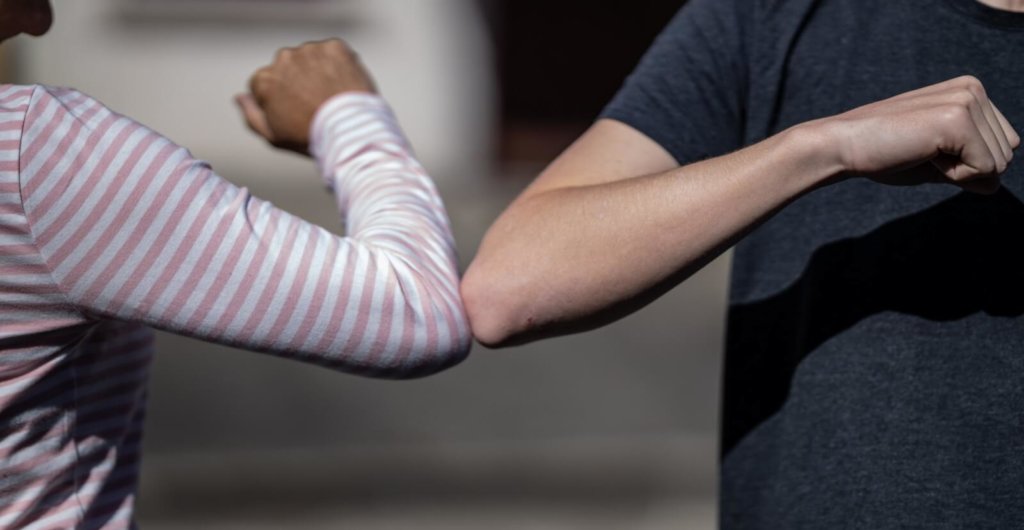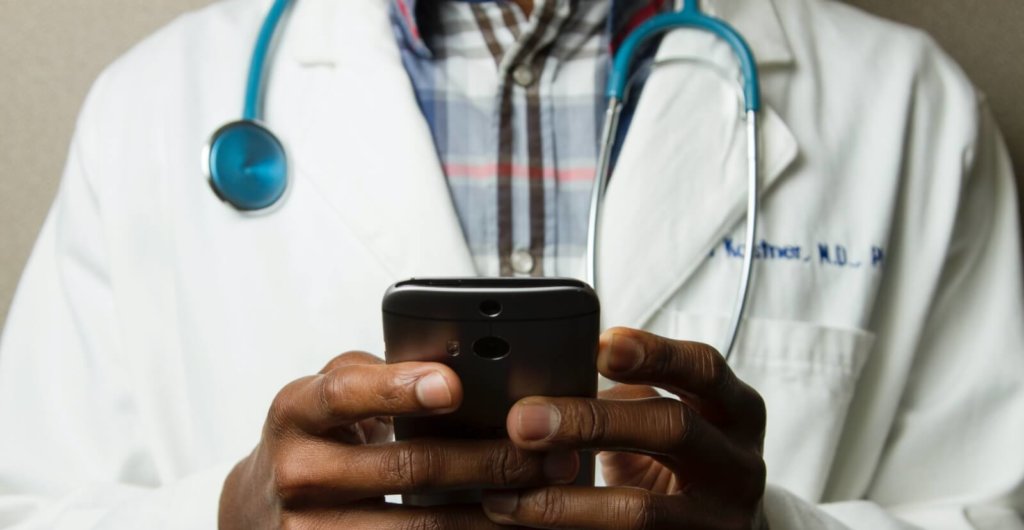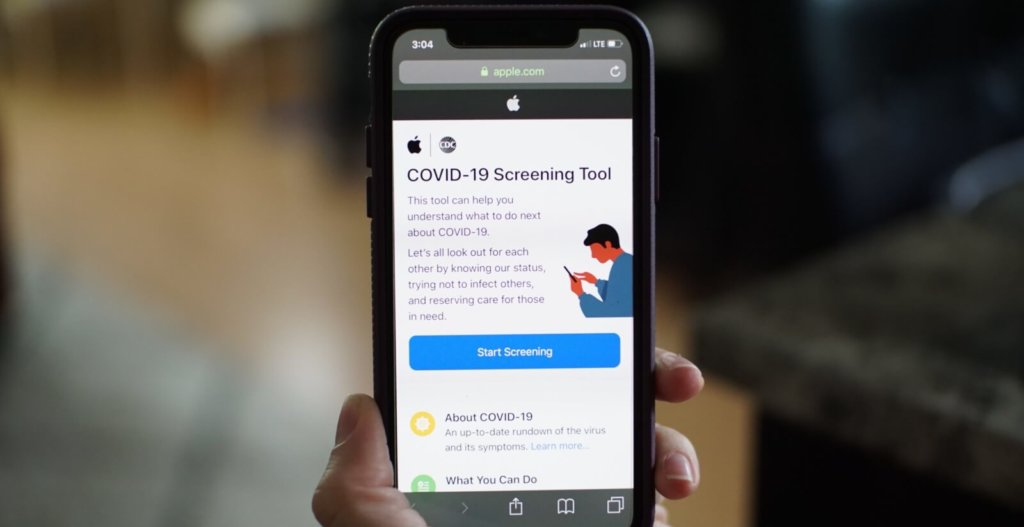How the Pandemic is Still Transforming mHealth
July 5, 2022 - 7 minutes read Acting as a premiere iPhone app developer in the midst of the COVID-19 pandemic was undoubtedly a challenge, now as the pandemic continues to transform telehealth, we’re positioned better than ever continue. The global pandemic environment spurred in 2020, with effects continuing to this day, has set the stage for years of exciting innovations to come in the healthcare space. Telehealth is arguably the most transformed aspect of healthcare since COVID-19 was declared a pandemic. Powered by internet connected mHealth platforms, telehealth connects doctors directly to patients via a secure and virtual connection – usually taking place on video or audio conferencing platforms – to avoid an in person office visit.
Acting as a premiere iPhone app developer in the midst of the COVID-19 pandemic was undoubtedly a challenge, now as the pandemic continues to transform telehealth, we’re positioned better than ever continue. The global pandemic environment spurred in 2020, with effects continuing to this day, has set the stage for years of exciting innovations to come in the healthcare space. Telehealth is arguably the most transformed aspect of healthcare since COVID-19 was declared a pandemic. Powered by internet connected mHealth platforms, telehealth connects doctors directly to patients via a secure and virtual connection – usually taking place on video or audio conferencing platforms – to avoid an in person office visit.
Staggering statistics from Health and Human Services found that between 2019 and 2020 the number of Medicare Part B telehealth visits increased from 840,000 to 52.7 million with 92% of these visits being in patients’ homes. In fact, prior to this time, Medicare and Medicaid policies generally restricted telehealth and allowed it only for providing access to sub-specialty care. With a public health emergency declared nationwide, federal and state policies were reformed to allow primary care physician’s to be compensated for telehealth visits. Thanks to these changes, which are likely to stay, healthcare has become more inclusive to patients in rural environments, elderly individuals, and those seeking behavior health specialists.
Paired with wearable tech, and a high demand for telehealth even after the pandemic, we are already seeing fascinating new modalities of healthcare that previously would have been thought to only belong in science fiction movies. In this article, we will dig into the key changes in telehealth policy that are innovating mHealth and how AI and wearables are blazing new trails for reimagined healthcare.
As a top-tier Los Angeles-based app development firm with a presence in Seattle New York and San Diego, we’re ecstatic to see the astronomical increase in telehealth services. Let’s dig in.
4 Key Telehealth Policy Changes During the Pandemic

During the pandemic, telehealth was pivotal to providing continuous care to individuals without risking exposure to COVID-19. During the pandemic, 15% of adults in the United States accessed telehealth for the first time. Now, in the wake of the pandemic, many individuals say they will continue to utilize telehealth. There are four key categories of policy changes that improved telehealth during the pandemic – here’s a summary:
Relaxed video conferencing restrictions: Mainly a HIPAA issue, telehealth can risk exposure of private patient information if not conducted on a secure platform. During the pandemic, HIPPA guidelines were made more flexible to allow telehealth video conferencing over “invite-only” connections, such as FaceTime.
Medicare and Medicaid policy changes: Several changes to these policies were made to enable in-home telehealth visits for patients and providers. These included allowing patients to remain at home, expanding eligibility to all Medicare patients (not just those in rural regions), including more providers such as physical therapists, and allowing audio-only visits.
Relaxed licensure requirements: During the pandemic, many states provided doctors temporary licenses in different states to expand telehealth access to patients.
Allowing prescribing of controlled substances: With these new policies, providers can prescribe controlled substances, via prescription, a telehealth setting.
Together, these and other in policy revisions will ultimately make telehealth on-par in terms of many services and functions that in-person visits can achieve. Beyond that, the intrinsic inclusivity offered by telehealth means that more individuals have access to more meaningful and convenient healthcare services.
How AI and Wearables are Enhancing Telehealth

Without key policy changes initiated during the pandemic, innovations in digital and wearable healthcare tech would not reach their full potential. In an effort to increase the capability of telehealth, PR Newswire reports an exciting partnership between TytoCare and Carilion Clinic that is bringing the first “all-in-one” exam solution for virtual visits. Powered by an mHealth app platform connected to AI features and modular attachments, TytoCare is releasing an at-home medical kit that patients can use during their telehealth visits with their primary care physician.
The modular medical kit allows patients to be walked through using an otoscope for ear inspection, a stethoscope for checking the heart and lungs, as well as a tongue depressor for accessing the throat. Together with the AI technology, patients can be notified of any abnormalities with recommendations of when to consult a physician. Because it is based on an AI algorithm, the more historical data that is comprehended only improves the accuracy of the diagnostic suite of tools. Future developments of the novel platform are said to include automatic diagnosis, remote monitoring and lab capabilities.
Summary

We are truly in the beginnings of digitized, virtual healthcare. As the pandemic broached new horizons, policy and technology rapidly evolved to address emergent risks while ensuring continuous care. With the pandemic largely behind us, many patients as well as physicians recognize the value of telehealth transformation and enablement. As we have seen with TytoCare’s recently announced platform, telehealth could put healthcare directly in the hands of patients with the power of mHealth apps.
Consider Dogtown Media
Dogtown Media understands how important your mobile application is to your business. We are more than just developers your hire. We are your partners, working in lockstep with you to create the best mobile application possible for your business that connects with your target audience.
We get to know not just your project but your company and the people who make it a success. Take advantage of our free consultation to speak to our mobile application development experts.









